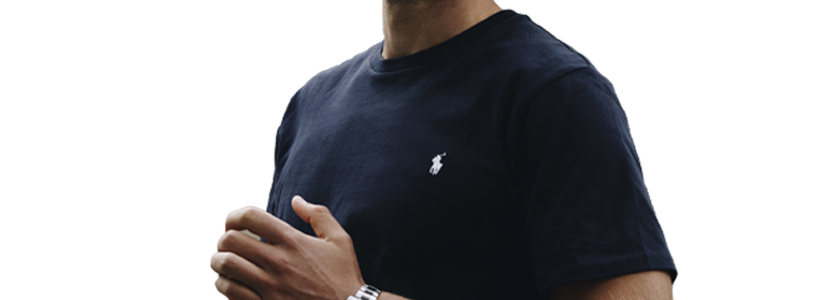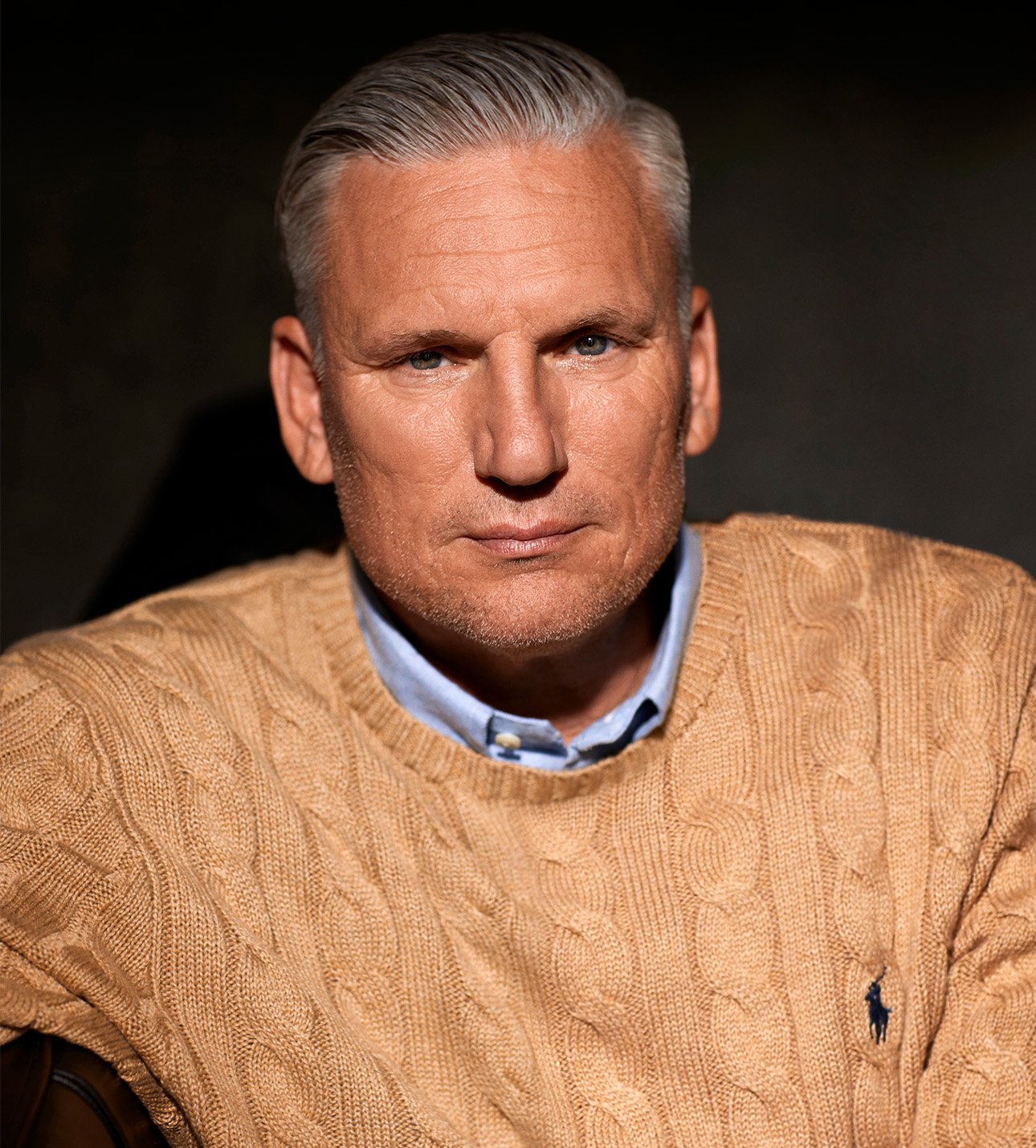
If there’s one word that follows in the wake of NIKOLAJ JACOBSEN, it’s SUCCESS. Four World Championship gold medals in a row. An Olympic medal of the finest kind and a silver one too. AS ONE OF THE WORLD’S BEST LEFT WINGS, HE WON DANISH AND GERMAN CHAMPIONSHIPS IN QUICK SUCCESSION. It came at a cost: a ruined knee and a stressful everyday life. BUT HE'S STILL MISSING THE EUROPEAN CHAMPIONSHIP GOLD TO COMPLETE THE SET.
A June afternoon in Østerbro, Copenhagen. Nikolaj Jacobsen has made the long drive from a meeting in Kolding to Copenhagen for a photo session ahead of an interview. He parks his electric car and plugs it into the charging station so the battery can handle the trip back home to Thurø.
Another driver pulls into the parking space next to him and immediately recognizes the national men’s handball coach. He pulls out his phone and asks if he can take a selfie. The answer is yes. Nikolaj Jacobsen runs a hand through his hair and flashes a big smile. The photo is taken and the national coach continues on to his final appointment of the day: an interview and photo shoot for Kaufmann Journal.
With his now silver-grey hair, he is easily recognizable on the street. And with his success on the sidelines at the Olympics, World Championships, and European Championships (he has, after all, led the men’s national team to both silver and bronze at the Euros), he has simply become something of a national treasure. A public figure. A role he plays to perfection, both when meeting handball fans in the street and when dressing in a tuxedo to attend the royal couple’s evening gala for arts and culture.
Most people know him from the timeouts during matches, when he speaks in what seems like an incomprehensible language, telling Mathias Gidsel, Magnus Saugstrup, and the rest of the team to run a "Barca" or a "Billund." Luckily, the players understand the commands. They are clear instructions on how Nikolaj Jacobsen expects the team to carry out the next attack. Attacks that, hopefully, catch the opponent off guard and result in another goal.
But this is also where we sometimes see another side of the national coach. Because if the players don’t follow the plan, he doesn’t hold back his dissatisfaction. He can be direct, and even sharp. There is an edge to him.
"I’m hired to bring medals home to Denmark. And I’m extremely ambitious. When you have a strong team, you’re also obligated to give your absolute best. That goes for me too. But honestly, I don’t see myself as particularly hot-tempered. The temperament I show during games doesn’t reflect who I really am."
From scoldings to leadership
It’s possible that the years have had a softening effect on Nikolaj Jacobsen. At least, his roles as both club coach and national coach have given him an understanding of how important proper team care is both in everyday life and during the long final tournaments.
Hard training and hard work on the court is what the players have to deliver. The national coach is responsible for the strategies and tactics. And sometimes the team as a collective needs to function optimally both athletically and socially. This is one of the things that sets the Danish national team apart from its competitors.
As Nikolaj Jacobsen says, “It’s still about winning.” He told the German handball magazine Bock auf Handball that the team has realized it is much more fun to stand at the top of the podium than to end up with silver or bronze medals.
“In Denmark it is important that everyone has the freedom to enjoy life. There should also be room for some fun off the court. For me it is important to give the players that freedom so their minds can stay clear.” But at the same time he stresses that if the team starts to lose focus it is the national coach’s job to get them back on track.
Thirty to forty years ago it was not uncommon for various national coaches often from Eastern Bloc countries to demand an almost military discipline where punishment and praise went hand in hand. Nikolaj Jacobsen became a coach in a different era. And today’s handball players have a different temperament that does not fit well with rigid discipline.
That is why the national coach has consciously worked on limiting his outbursts. “It is a part of me that I have tried to work on.” A necessity when adapting to a new generation of players.
When you ask him directly it does not seem coincidental that he chooses the words tactical, direct and caring to describe his leadership style. These are simply a big part of the secret behind the great success that Nikolaj Jacobsen and the national team have achieved together over the past eight years.
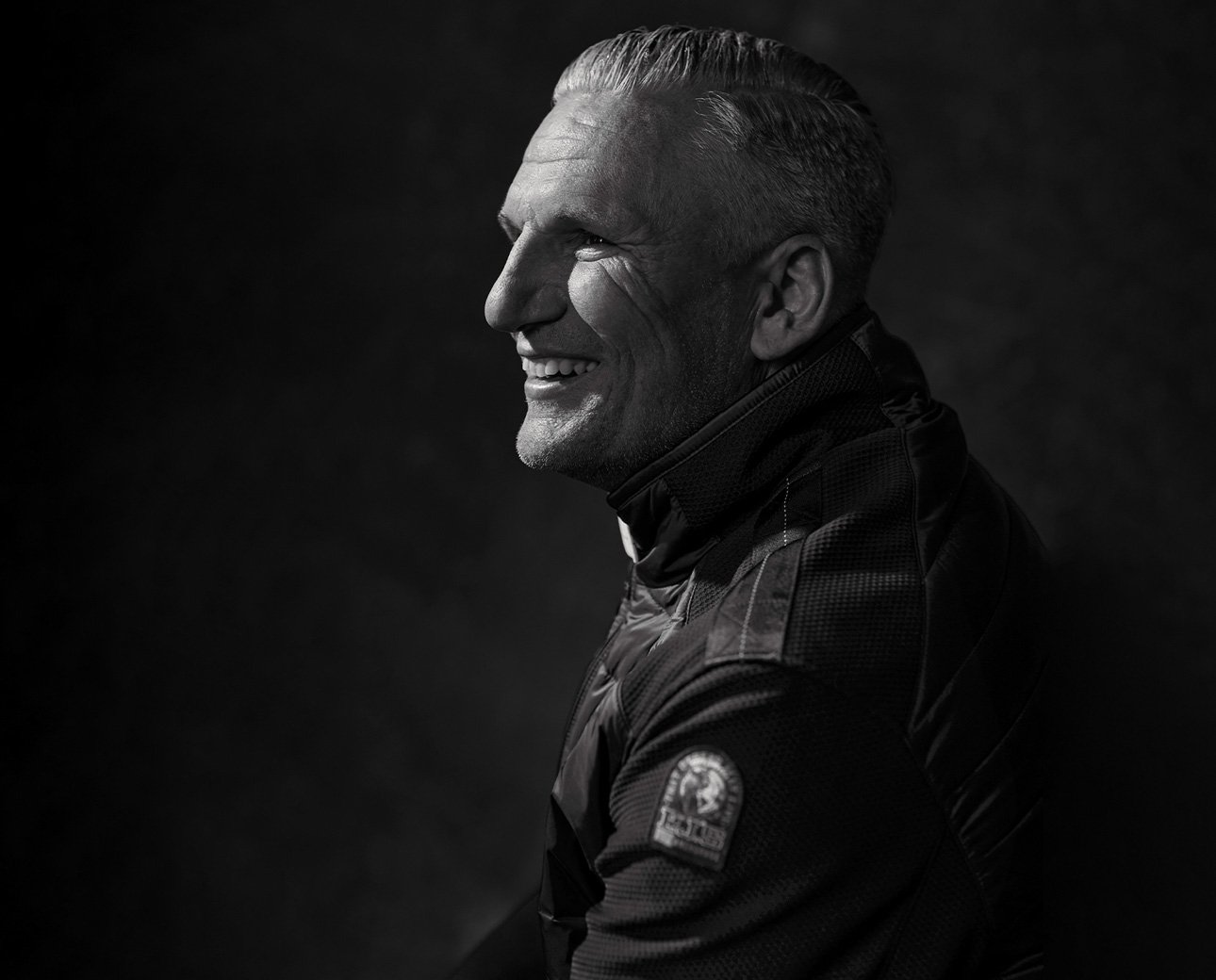
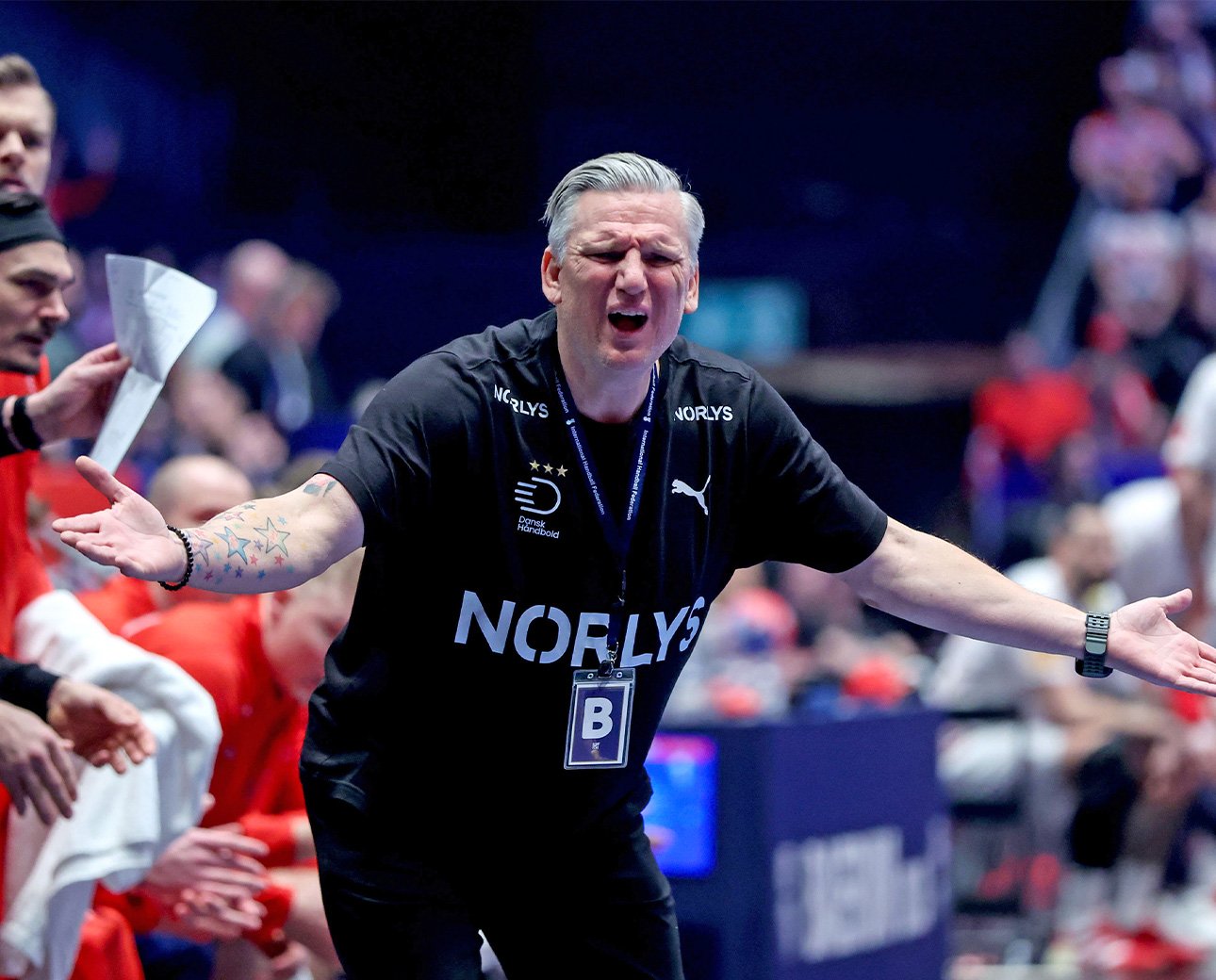
The Stars and the Water Carriers
Another part of the national coach’s job is to get the team to function as a collective. At the same time, there is no doubt that the team has both stars and water carriers. It may not be something that is talked about much in the locker room. It is a quiet acceptance of the reality.
“It’s no secret who is most important on a team. The players might not say it out loud, but they know it.”
Players like Mikkel Hansen and more recently Mathias Gidsel have shown through their success with the national team how this works. After all, you win handball games by scoring more goals than the opponent. Of course, the defense must stand solid on the six-meter line and prevent goals. But it is the goals that count.
Since Nikolaj Jacobsen took over as national coach in 2017, the team’s two star players have been the backbone of the extraordinary success Danish men’s handball has had at the major tournaments.
At the same time, they are a clear example of how skillfully Nikolaj Jacobsen and the staff around the team have managed a quiet generational shift, where stars like Mikkel Hansen, Lars Christiansen, Lasse Svan, and Niklas Landin have gradually been replaced by Mathias Gidsel, Lukas Jørgensen, and Simon Pytlick.
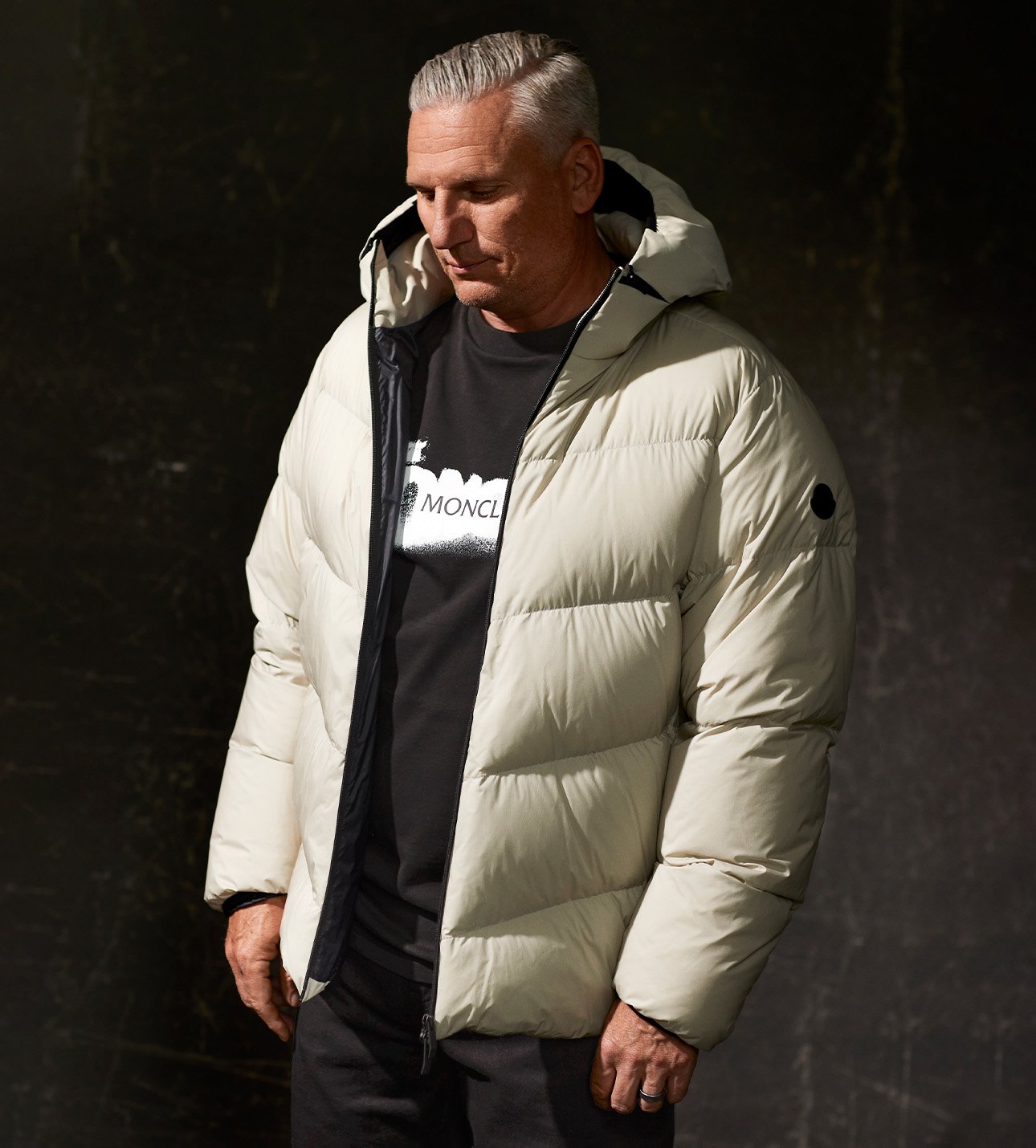
Football or Handball
Nikolaj Jacobsen grew up on Funen, where his father worked as a social educator in Oure. And even though today his name is associated with elite-level handball, it was football that attracted him as a boy. He was not without talent. In fact, he played on the first team of his age group. But even before his teenage years fully took hold, he faced his first difficult career choice.
He had already started playing handball at GOG when he was 11, but he was forced to choose. In the football club, he had to pay for his own transportation to both training and matches. And the bus ticket from Oure to Svendborg, plus the train to Odense, was more than the family could afford - even with the money he earned from his paper route. That was an 11 to 12-kilometer bike ride out in the countryside.
He himself believes he could have had a decent career in the Danish Superliga, but never in Champions League finals or the national team. So the choice was clear. His winning mentality and skills with the resin-coated handball won over football. So it was at GOG that he got to pursue his ambitions.
Good for Nikolaj Jacobsen. And good for Danish handball. The physical aspect of handball, the tough tackles, and the execution of shots on goal from all kinds of angles was just right for him. Not least, it nurtured and strengthened his competitive spirit. An immensely important element for a young man who had cried since childhood whenever his team lost a football match. And that was whether it happened at a children’s birthday party on the lawn or during his junior years at OB.
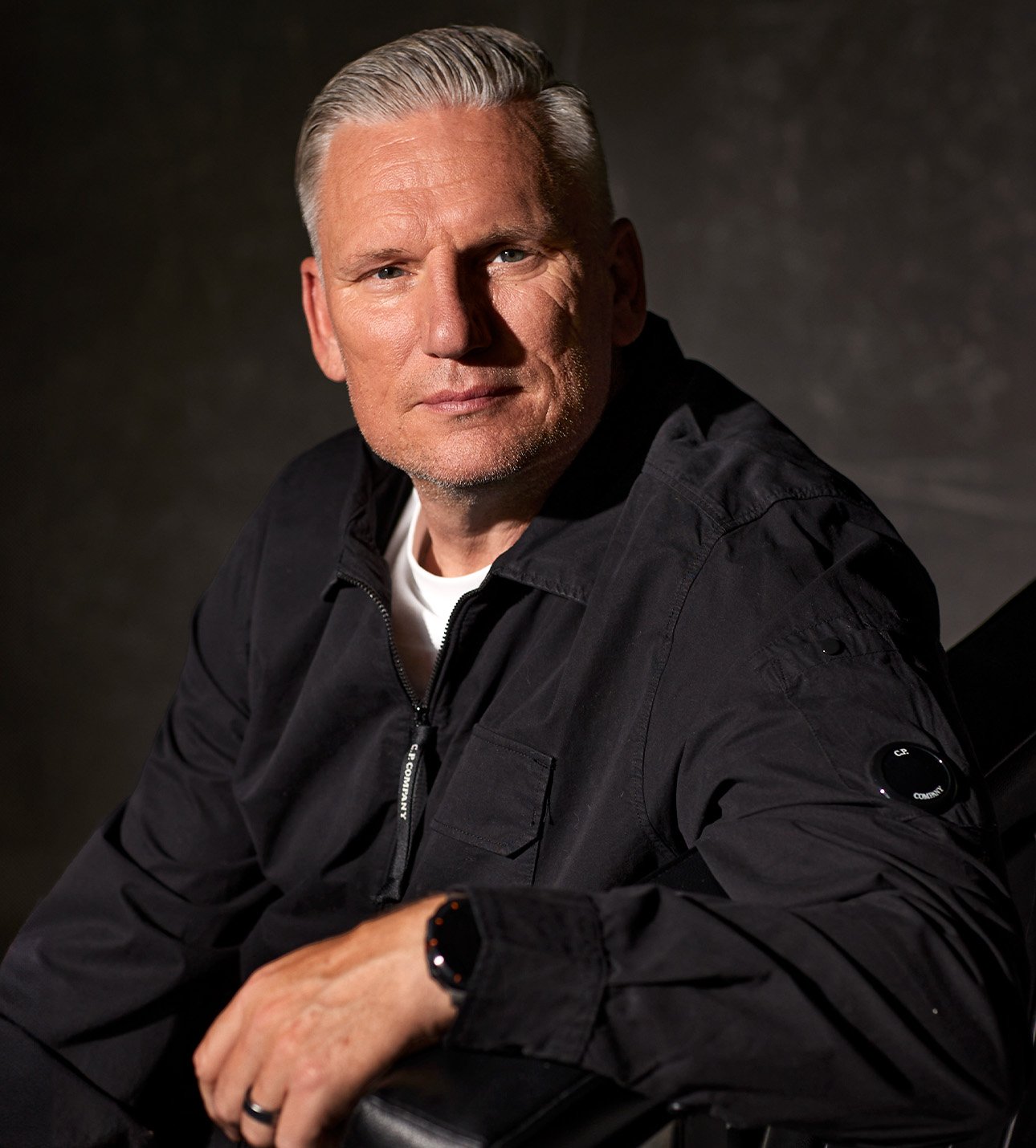

Both talent and hard work meant that at 19, he made his senior debut on GOG’s first team. It was not a time of big money in Danish handball. His first contract was for 500 kroner a month before tax.
Conditions improved significantly when in 1997 he was offered a contract with the German club TSV Bayer Dormagen, where he played 28 games and scored 189 goals in one year. But if he expected strict German discipline and fighting spirit, he was severely disappointed. In his own words, it was somewhat of a relaxed team, where the players would sit down and drink a string of beers after every training session.
Things got more serious when after a year in North Rhine-Westphalia he moved to the major club THW Kiel. Here the training included intensive running, not to mention the training camps where they had to get up at quarter past six to run 8 to 10 kilometers around a lake while the coach was fishing.
But training and games every weekend meant that in Kiel, Nikolaj Jacobsen developed into one of the world’s best left wings. His legendary screw shots helped secure two German championships and two cup final victories. “The only thing I’m missing - and still missing is, of course, the Champions League trophy.” He had the chance in 2000 but lost the final to FC Barcelona.
Paid the Price
But the new millennium also marked the start of a long period of injuries. One thing was that Nikolaj Jacobsen, with THW Kiel, lost the Champions League final to the Spanish powerhouse. More significant for his future career was when he suffered a serious knee injury in the opening match of the Bundesliga season in 2001.
In the following three years, he played only 72 games. And although he scored 331 goals, he could not shake the knee injury. First, he said goodbye to the national team, where he had been a regular since 1991. In 2004, he moved back to Denmark with his family to Viborg HK as a player-assistant coach under Ulrik Wilbek.
But the years in Germany, besides the sporting success, also managed to soften some of the edges of the fiery Nikolaj Jacobsen. This was largely due to his Swedish teammates: Magnus Wislander, Staffan Olsson, and Stefan Lövgren. Here he got the raw truth, especially when he complained about not getting the ball. The answer always came promptly: “You get the ball when you speak nicely.”
He never fully recovered from the knee injury. But the pain subsided when he had an artificial knee implanted. It marked the end of his playing career. A career that left its mark so much so that in 2023 he was inducted into the European Handball Federation’s Hall of Fame.
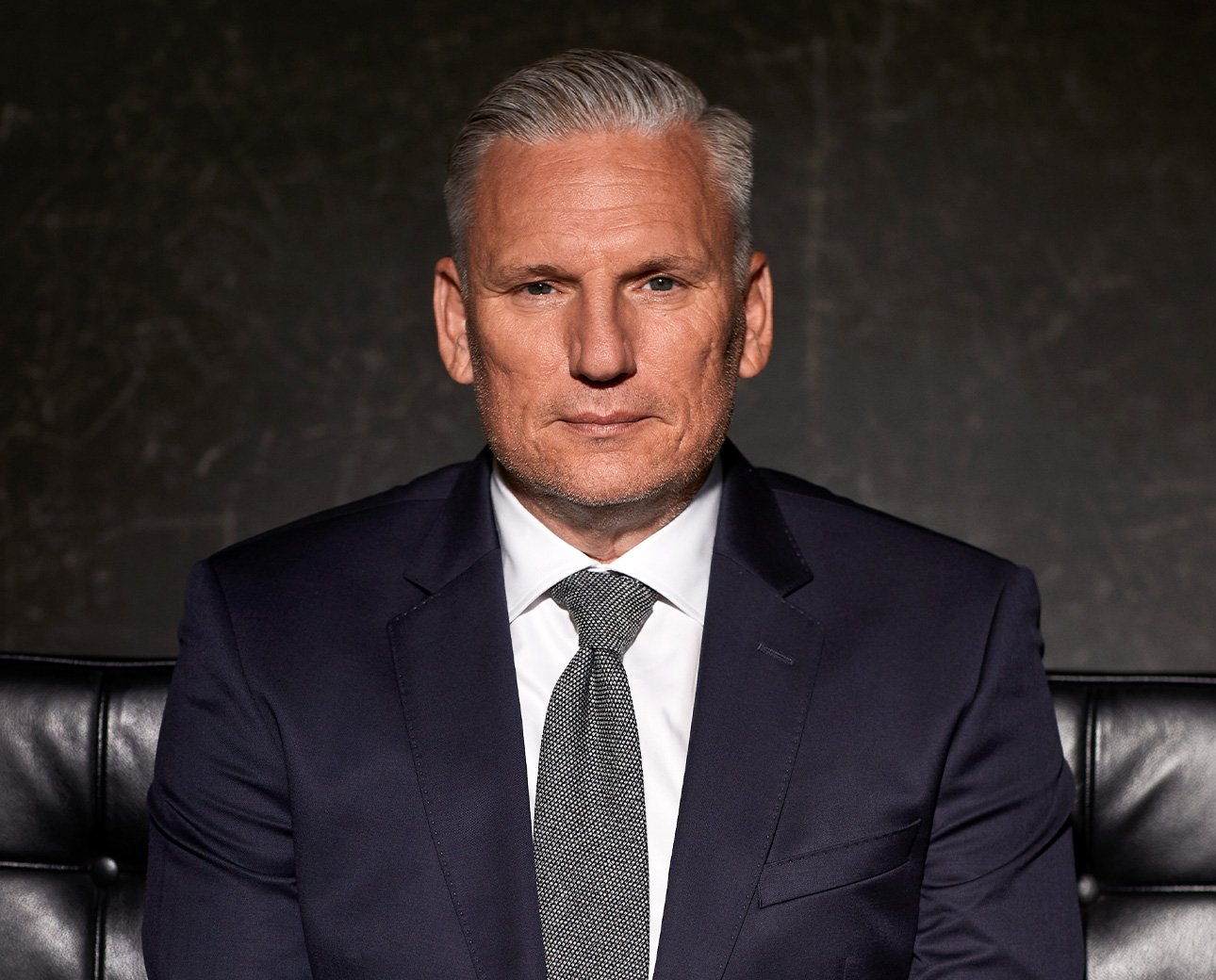
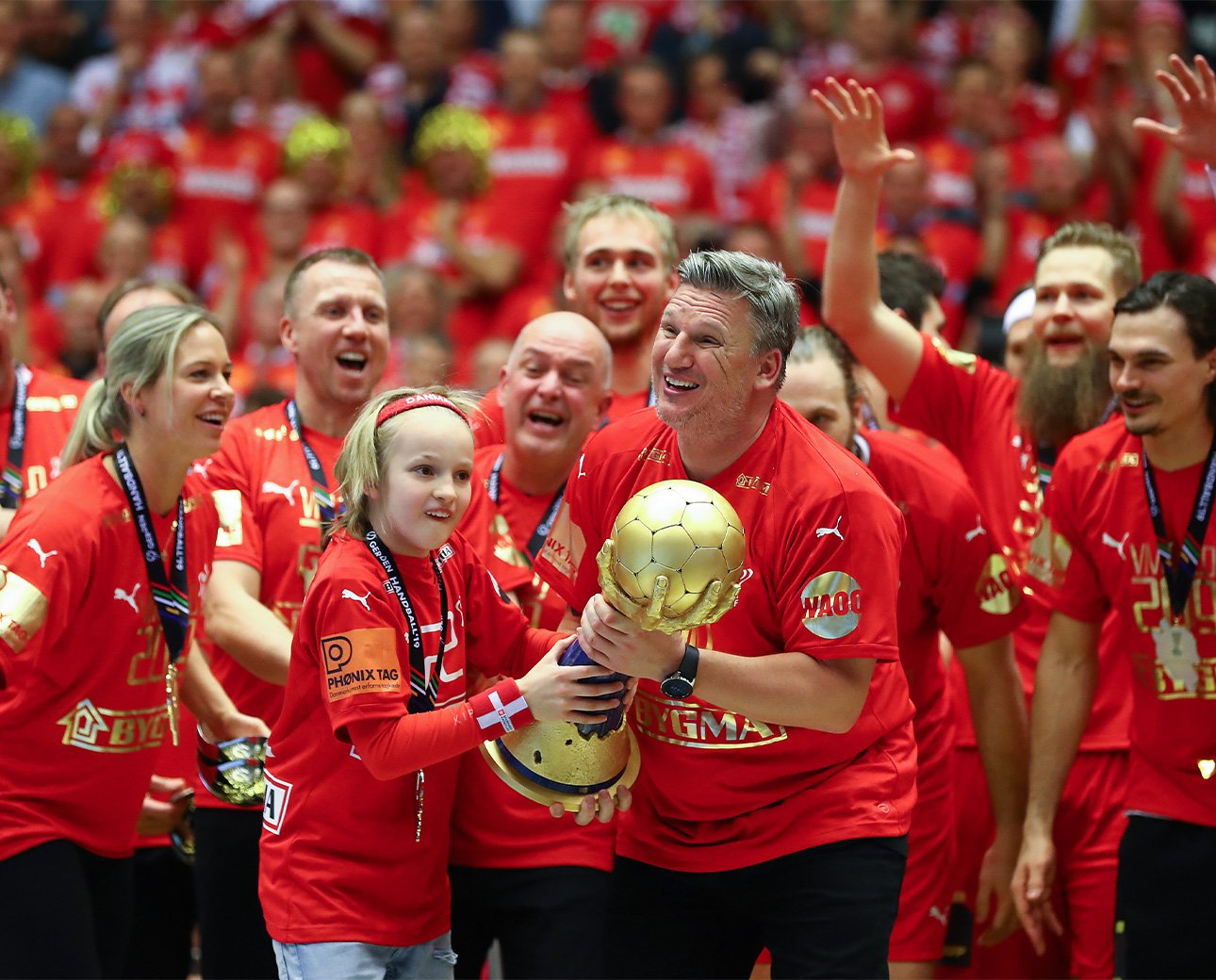
Coaching Twice Over
After retiring as a player in 2006, coaching became his main focus. From Viborg HK to BSV and then to Aalborg Håndbold, where in his first season as head coach he managed to win the Danish championship. He actually had a three-year contract with the North Jutlanders. But already in November 2013, he moved back to Germany. More precisely to Rhein-Neckar Löwen in Mannheim. He took over as head coach from the Icelandic Guðmundur Guðmundsson, who had just landed the job as Danish national coach.
Here too, Jacobsen’s success was clear: two German championships in two years, in 2016 and 2017. The year 2017 would prove to be pivotal for Nikolaj Jacobsen’s coaching career—in more ways than he might have expected.
Because in 2017, the men’s national team played its worst World Championship in 12 years. They were eliminated already after the preliminary round, in the round of 16 against Hungary. This led the Danish Handball Federation to look for a new national coach. And unsurprisingly, the choice fell on Nikolaj Jacobsen.
The first major tournament was the European Championship in January 2018. Expectations were high. But to Jacobsen’s great disappointment, the team finished in fourth place after losing the semifinal to Sweden and the bronze match against France.
Stress
It was - with life on the line, so to speak - that he took over the national team. Because he continued coaching his German team Rhein-Neckar Löwen.
“It was a tough life. And after the European Championship, I realized my blood pressure had gone completely out of control. A result of stress. Daily life in Germany consisted of training and long bus rides to all the Bundesliga games. And I also had to spend hundreds of hours in front of the screen preparing for the national team camps.”
This meant lifestyle changes - and a final goodbye to his German club in 2019. From then on, it was all about the national team.
A good decision. Both for Jacobsen’s health and the national team. Since then, he has won four World Championships in a row and an Olympic gold medal in 2024 in Paris.
He is very aware that he and the team are role models for many. Also when it comes to recognizing stress and acting in time. Just like when Mikkel Hansen had to take a break for a while. “It is important to listen to the signals. We are not only role models because our success gets thousands of kids and young people to play handball. We have made Denmark a genuine talent factory. But the price can also become too high.”
Keeping both feet on the ground is a relatively new quality that Nikolaj Jacobsen has developed. Nevertheless, he is still ambitious on behalf of the national team. For now, it is about turning the European Championship silver and bronze into a gold medal at the 2026 European Championship. And naturally, he also dreams of getting a fifth gold star on the players’ jerseys after the 2027 World Championship.
“I am in a different place in life now. We have more time for family life. Especially now that the children are grown and have moved out.”
But even though there is more time for his wife, Lenette, and family life, he still wants to win when he sends the national team into battle. And there is definitely room for new challenges. As he says: “I still have yet to win the Champions League ...”
One thing is certain. Success as national coach has made him a national icon in a country where people are often a bit skeptical when someone steps forward aiming for titles and gold medals. As long as it goes well, that is what makes people on the street stop and ask for a selfie. Just like when the interview and photo session this Tuesday in June were coming to an end. The photographer’s son arrived at the studio wearing his newly acquired graduation cap.
Here too, a smiling Nikolaj Jacobsen had to pose for a selfie. Hopefully not the last one…





